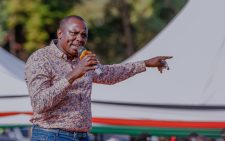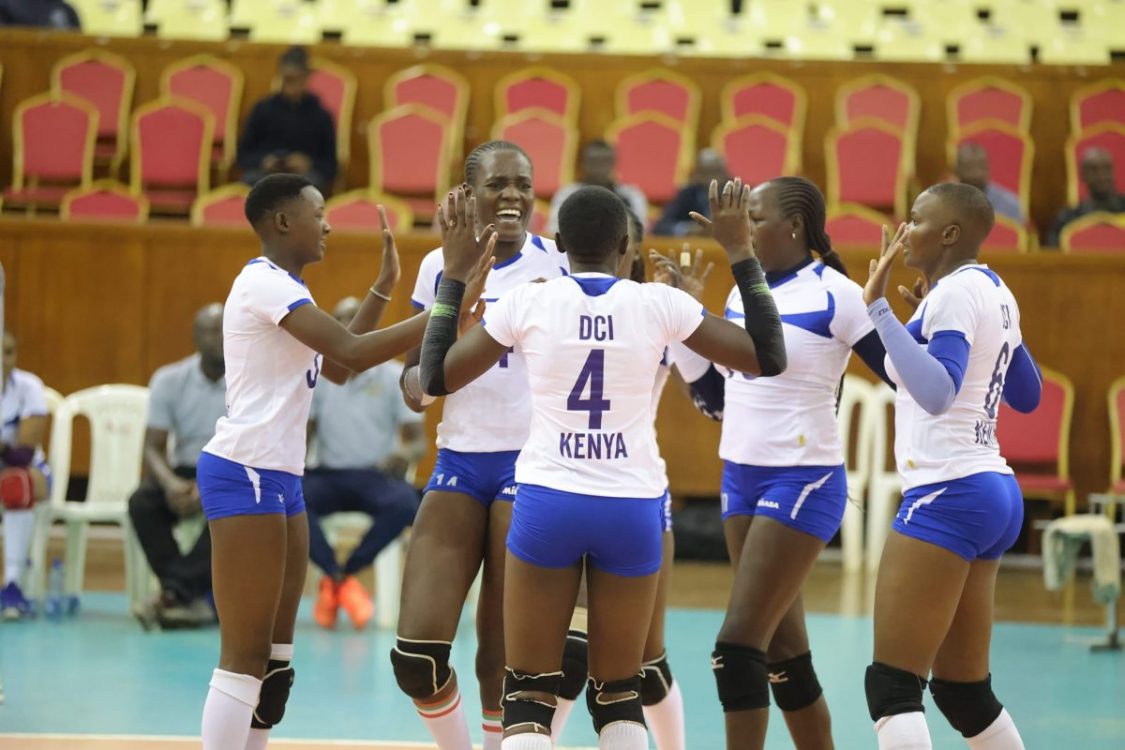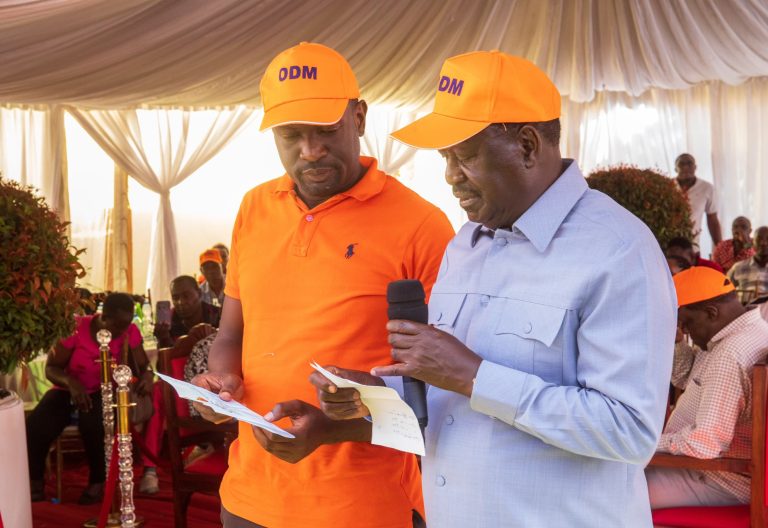By-elections: Litmus test for bigwigs
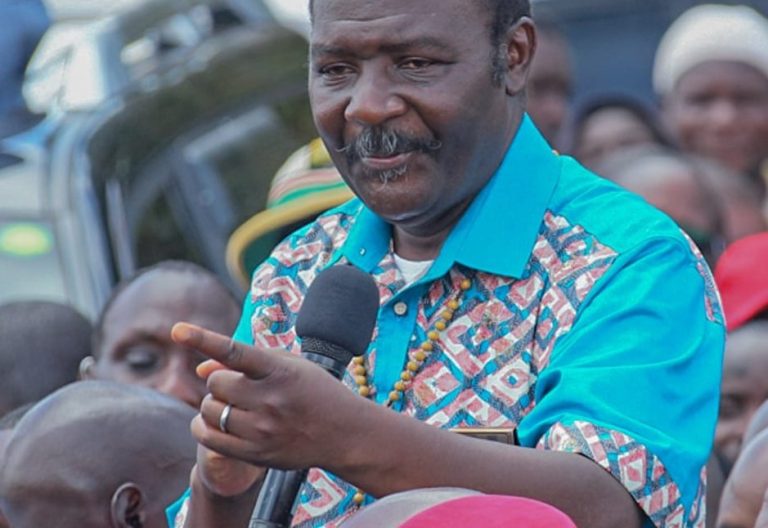
Kenya is on the brink of a series of by-elections that promise to reshape its political landscape. These upcoming contests are more than mere electoral formalities. They serve as a litmus test for the ruling Kenya Kwanza coalition and the opposition, especially in the wake of Raila Odinga’s recent setback in his bid for the African Union Commission chairmanship (AUC).
In the aftermath of the contentious 2022 General Elections, internal divisions within Kenya’s Independent Electoral and Boundaries Commission (IEBC) over the presidential results led to a crisis of credibility.
Chairperson, the late Wafula Chebukati, along with commissioners Prof. Abdi Yakub Guliye and Molu Boya, remained in office until their term ended, while Vice-Chairperson Juliana Cherera and Commissioners Francis Wanderi, Irene Masit, and Justus Nyang’aya resigned. This leadership vacuum stalled electoral processes, resulting in a backlog of by-elections awaiting execution.
The IEBC selection panel, led by Dr. Nelson Makanda, anticipates that new officials will assume office by April 25, this year setting the stage for these critical polls.
Disgruntled population
Historically, by-elections in Kenya have been more than just procedural events; they’ve been pivotal in signaling political shifts and influencing national discourse. During President Moi’s tenure, for instance, by-elections often served as instruments for political consolidation, with the ruling party, KANU, leveraging State machinery to influence outcomes. The 1983 by-elections, following snap General Elections, underscored Moi’s dominance, as KANU reinforced its supremacy through State-backed victories.
In contrast, the multiparty era starting from 1991, saw by-elections reflecting the public’s appetite for change. The 2003 by-elections, post the transition from KANU to NARC, showcased widespread support for governance reforms, with voters rallying behind candidates aligned with President Kibaki. Similarly, the 2010 by-elections, amidst constitutional reforms, tested the government’s popularity, while the 2021 contests in Juja and Bonchari highlighted growing political polarisation during President Uhuru Kenyatta’s administration. These precedents suggest that by-elections are not merely local contests but broader reflections of national political dynamics.
In the upcoming by-elections, the Baringo Senate seat stands out due to its symbolic significance. The seat fell vacant following the death of Baringo Senator William Cheptumo in February.
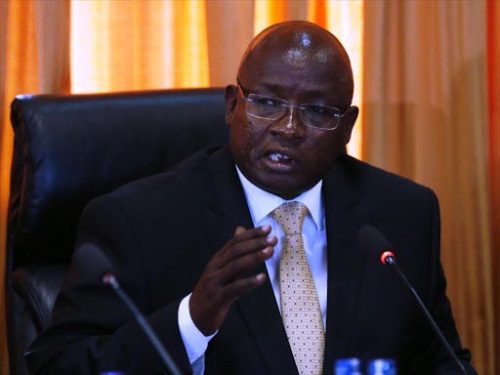
Should KANU, once a political behemoth and now a key opposition player, clinch this seat, it would reverberate through President Ruto’s stronghold, suggesting potential vulnerabilities in his Rift Valley bastion. Such an outcome would not merely be a local upset but could indicate emerging fissures in the President’s support base.
For an opposition eager to gain traction, a victory here would symbolise shifting political currents and potential inroads into regions previously dominated by Kenya Kwanza.
Other constituencies, including Magarini, Banisa, Ugunja, Malava, and Juja, offer a broader perspective on national sentiment. In Magarini, the annulment of former MP Harrison Kombe’s election has opened an unexpected opportunity. President Ruto has even hinted at a potential alliance with Raila’s ODM, reflecting the fluidity and unpredictability of Kenyan political alliances.
Meanwhile, the Ugunja by-election, prompted by MP Opiyo Wandayi’s cabinet appointment, will assess whether ODM’s influence in Nyanza remains robust or if new political forces are emerging within the region.
The Banisa constituency in Mandera County faces a unique political challenge following the untimely demise of its MP Kulow Hassan.
Traditionally a ruling party stronghold, this by-election will determine if Kenya Kwanza can maintain its dominance or if opposition forces can capitalise on any emerging discontent. Similarly, the contests in Malava and Juja will gauge the opposition’s strength in areas where President Ruto’s allies have previously held sway. Malava seat fell vacant following death of its Member of Parliament Moses Malulu Injendi.
Beyond the political maneuvering, these by-elections serve as a barometer for public sentiment on governance, economic performance, and pressing issues like the cost of living. The Kenyan electorate has become increasingly vocal about economic hardships, job losses, and the heavy taxation policies introduced by the government. The opposition has positioned itself as the voice of these grievances, and if voters channel their frustrations at the polls, it could serve as an early warning for President Ruto’s administration.
Rising inflation, high fuel prices, and persistent unemployment have become major talking points across the country. The Kenya Kwanza administration has defended its economic policies, arguing that structural adjustments are necessary for long-term stability. However, opposition leaders led by former Deputy President Rigathi Gachagua, Wiper Party leader Kalonzo Musyoka, Democratic Action Party-Kenya (DAP-K) leader Eugene Wamalwa, and Jubilee Secretary General Jeremiah Kioni among others argue that the government has failed to cushion ordinary Kenyans from financial strain. These economic concerns could influence voter turnout and candidate preferences in the by-elections.
Moreover, the by-elections will provide insight into the effectiveness of Ruto’s bottom-up economic model. If Kenya Kwanza candidates perform well, it would suggest that voters are willing to give the administration more time to implement its policies. However, significant losses could indicate growing disillusionment with the ruling coalition.
The operational challenges within the IEBC have underscored the necessity for institutional stability. A functional and impartial electoral body is crucial for upholding democratic integrity and public trust. Lessons from past by-elections indicate that a transparent and independent IEBC can enhance political stability, whereas a compromised commission can exacerbate tensions.
As new commissioners prepare to assume office once the Dr Nelson Makanda selection panel concludes its task, their inaugural task will be to conduct these by-elections with transparency and credibility. Any missteps could further erode public confidence in Kenya’s electoral system. To rebuild trust, the IEBC must demonstrate impartiality, ensure efficient vote tallying, and prevent political interference. The incoming IEBC chair and commissioners will undoubtedly face intense scrutiny as they navigate Kenya’s charged political environment.
Furthermore, the digitalisation of election processes, including electronic voter identification and results transmission, will be under close examination. The failures of previous elections, particularly in results transmission, must be addressed to prevent similar controversies. Voters and political parties will be keen to observe whether the IEBC can deliver free, fair, and credible by-elections.
Moreover, political stakeholders must approach these by-elections with a sense of responsibility. Historically, political violence, voter bribery, and electoral malpractices have undermined Kenya’s democratic progress. It is imperative that the government, opposition, and civil society collectively advocate for peaceful and fair campaigns.
The use of inflammatory rhetoric, ethnic mobilisation, and vote-buying remains a concern. Political parties must commit to issue-based campaigns that prioritise policy discussions over personal attacks. Security agencies, in turn, must ensure that electoral malpractices, including intimidation and violence, are curtailed by applying the law in toto.
In essence, these by-elections are far from routine. They mirror the nation’s anxieties, aspirations, and evolving allegiances. Voters are not merely selecting representatives; they are sending signals, testing political waters, and setting the stage for future political dynamics. For those in power and those aspiring to it, the electorate’s message will resonate loudly and unmistakably.
For President Ruto, these by-elections transcend the immediate goal of securing seats; they are about preserving an image of invincibility. A loss in a symbolic region like Baringo could deal a significant blow, sowing doubts even among his staunchest supporters.
Raila Odinga’s engagement in these by-elections will be pivotal; active participation could redefine his political trajectory, while a more passive approach might suggest a diminishing influence. Ultimately, as Kenya prepares for these by-elections, the political stakes could not be higher. Whether they reinforce the status quo or herald new political realignments, the results will shape the country’s political landscape in profound ways.
The writer is a History Lecturer & UASU Chapter Trustee, Alupe University-Kenya email: chebiizk@gmail.com
